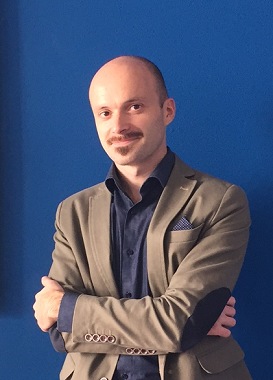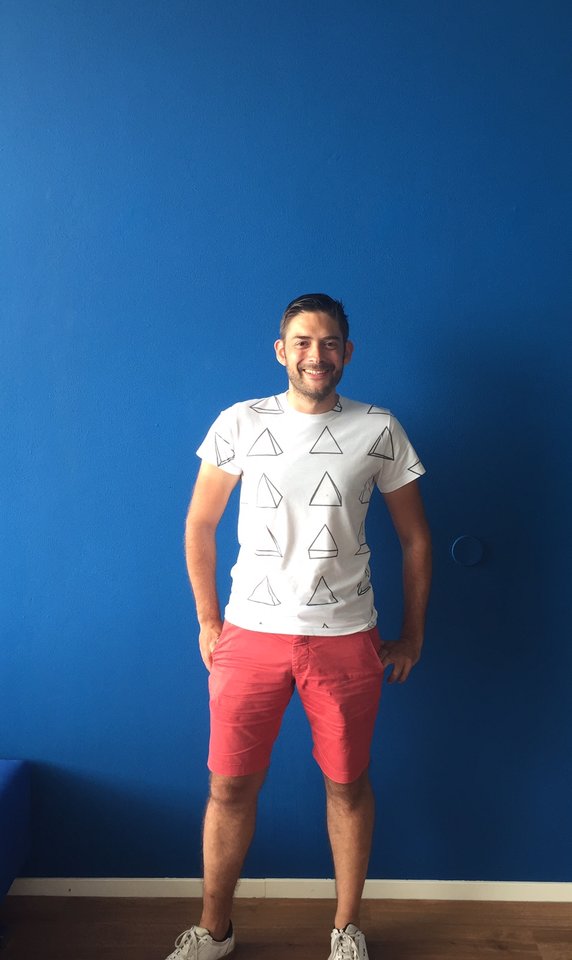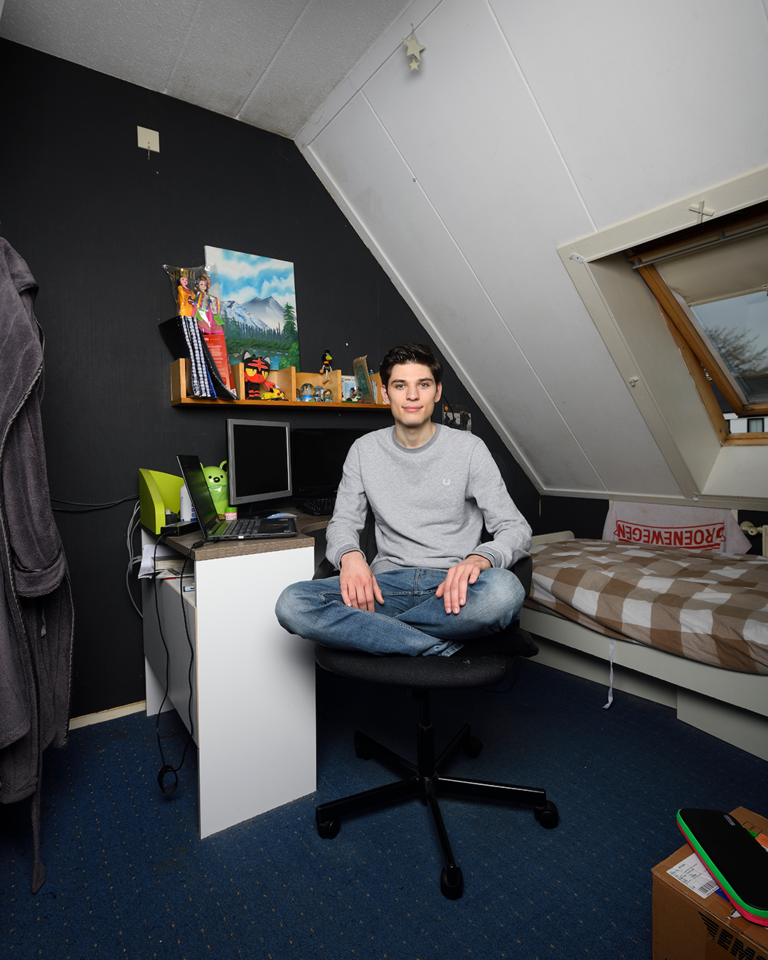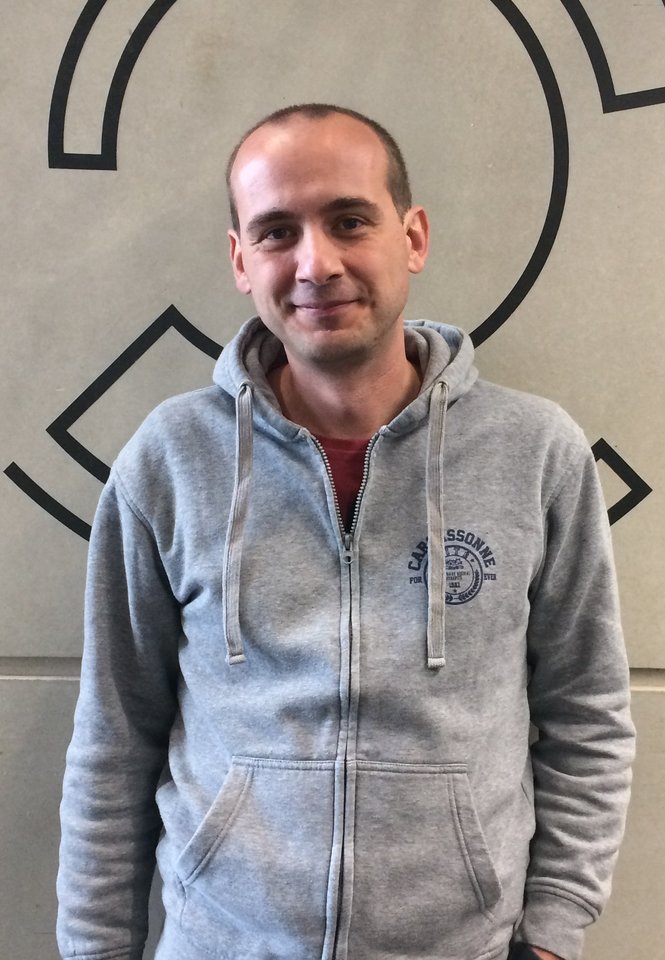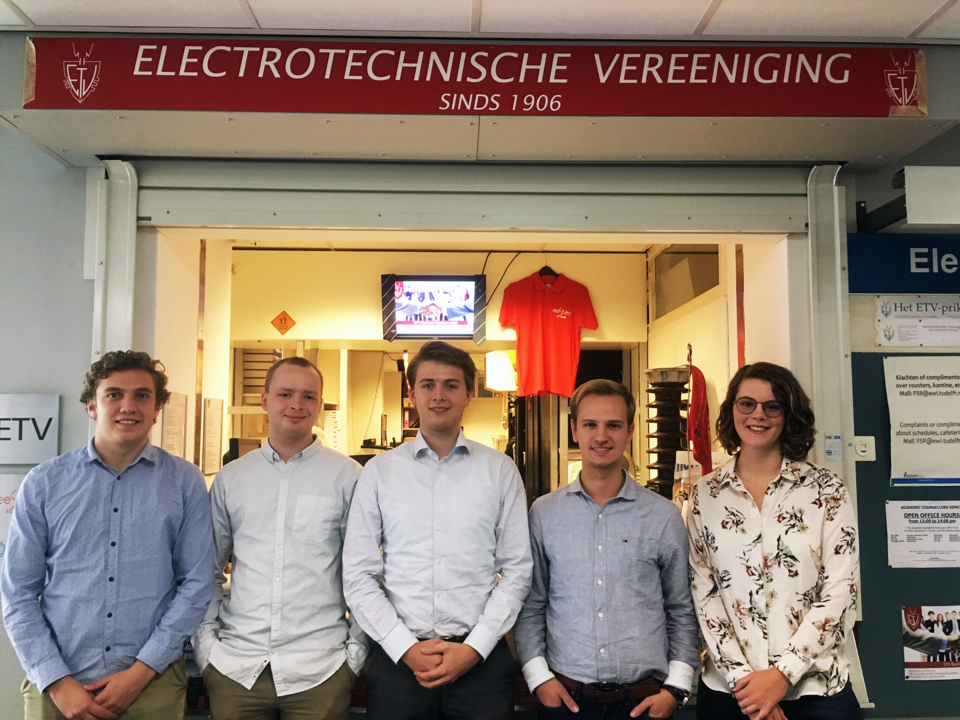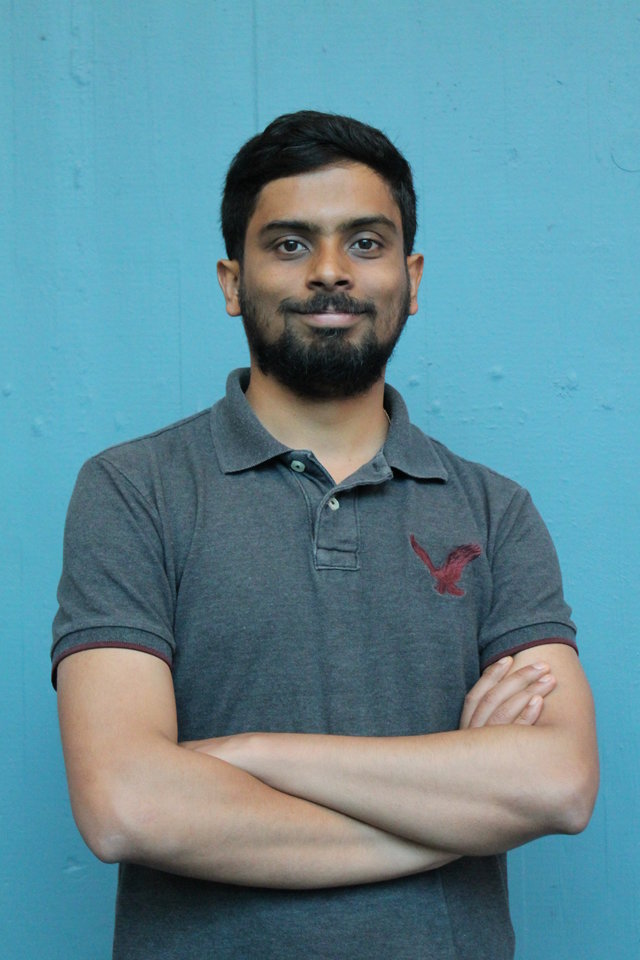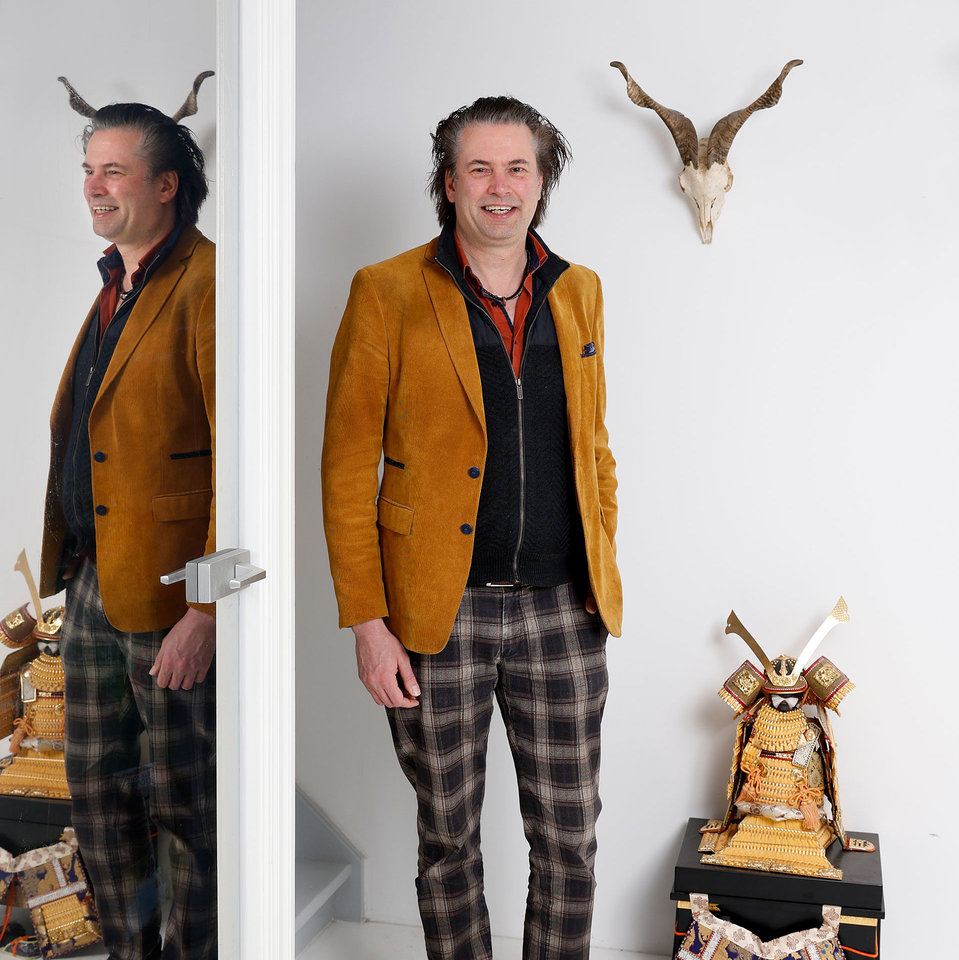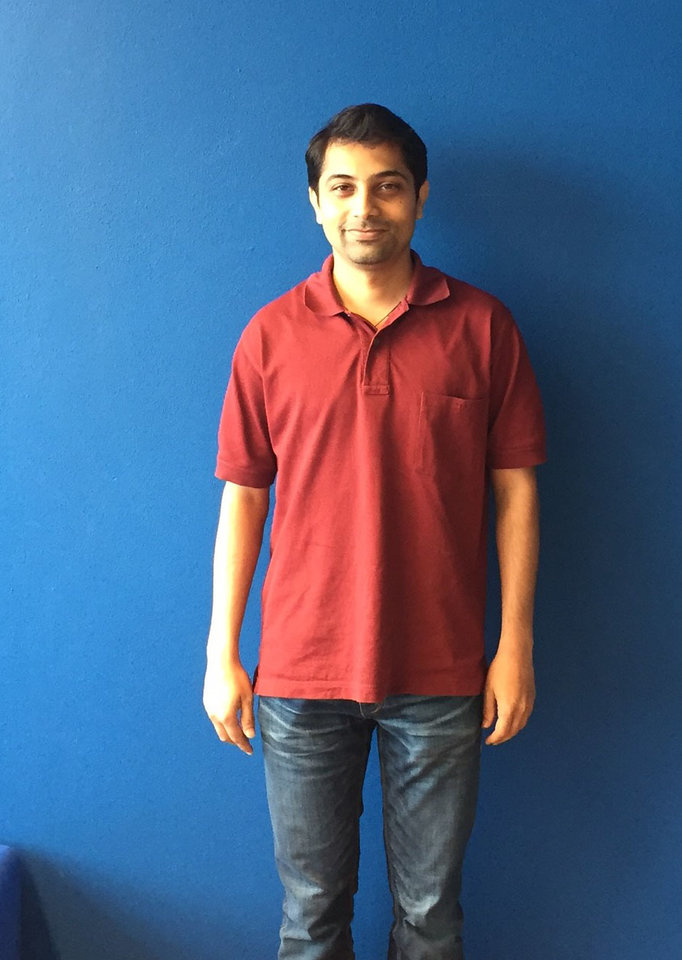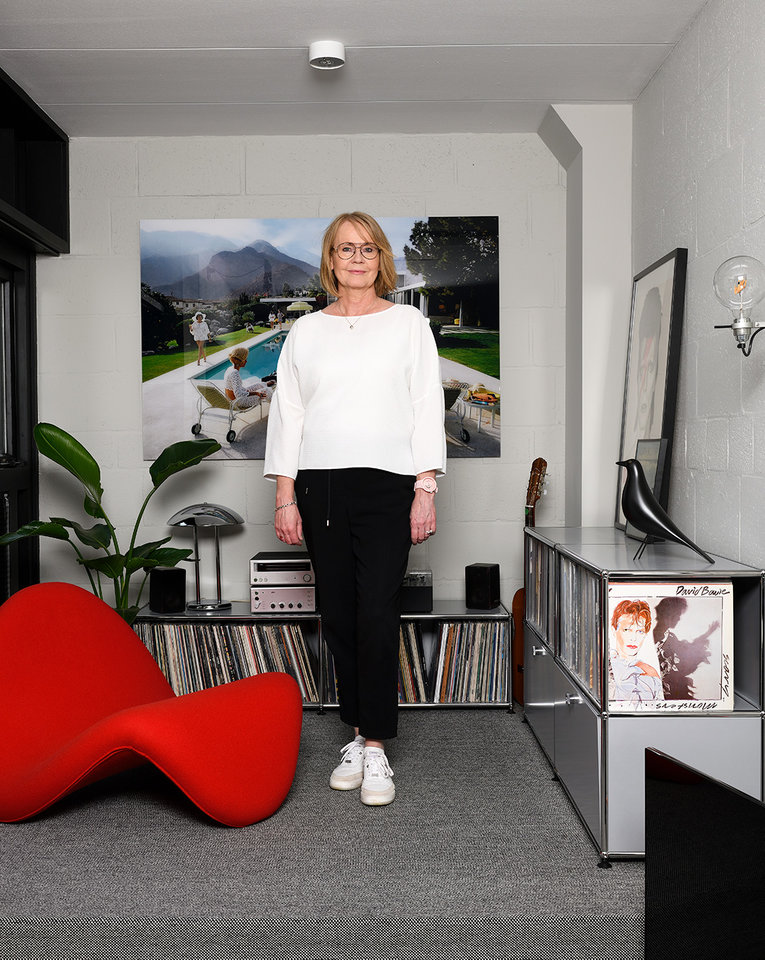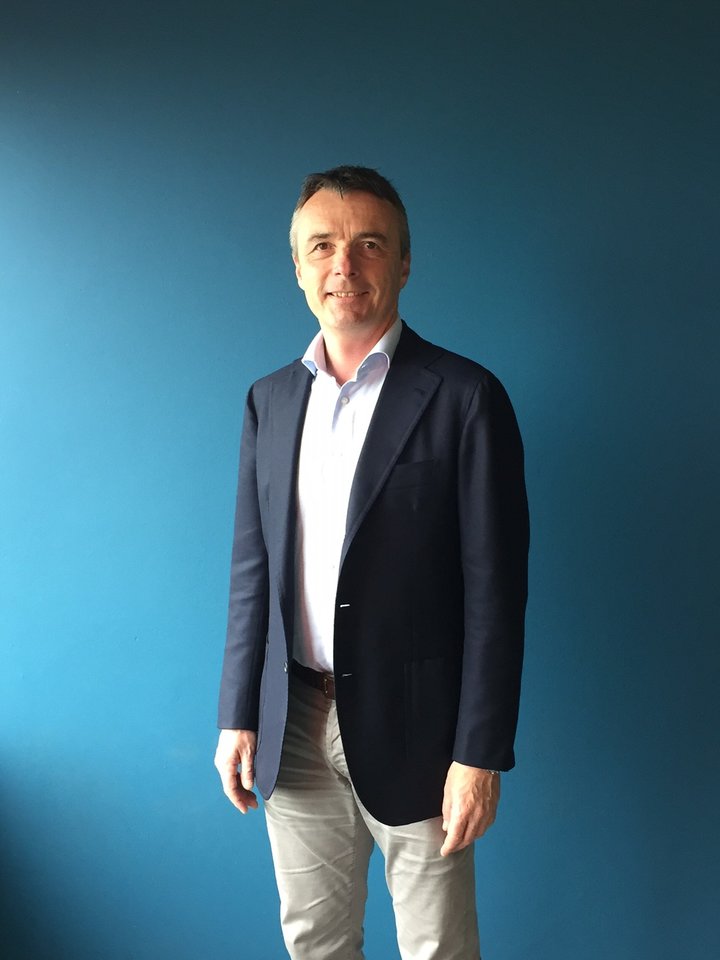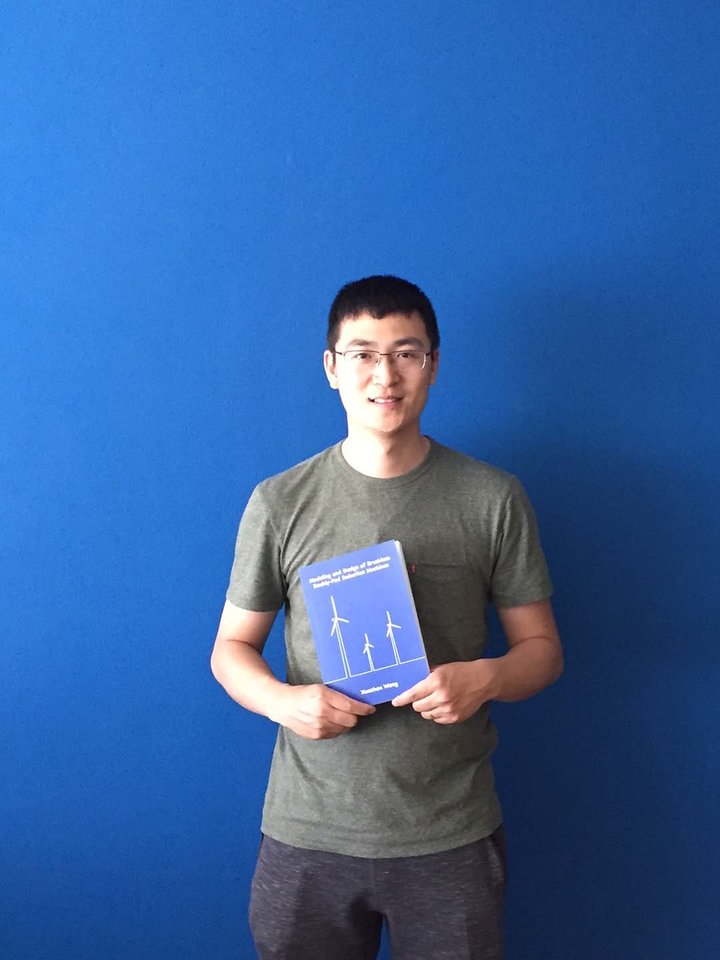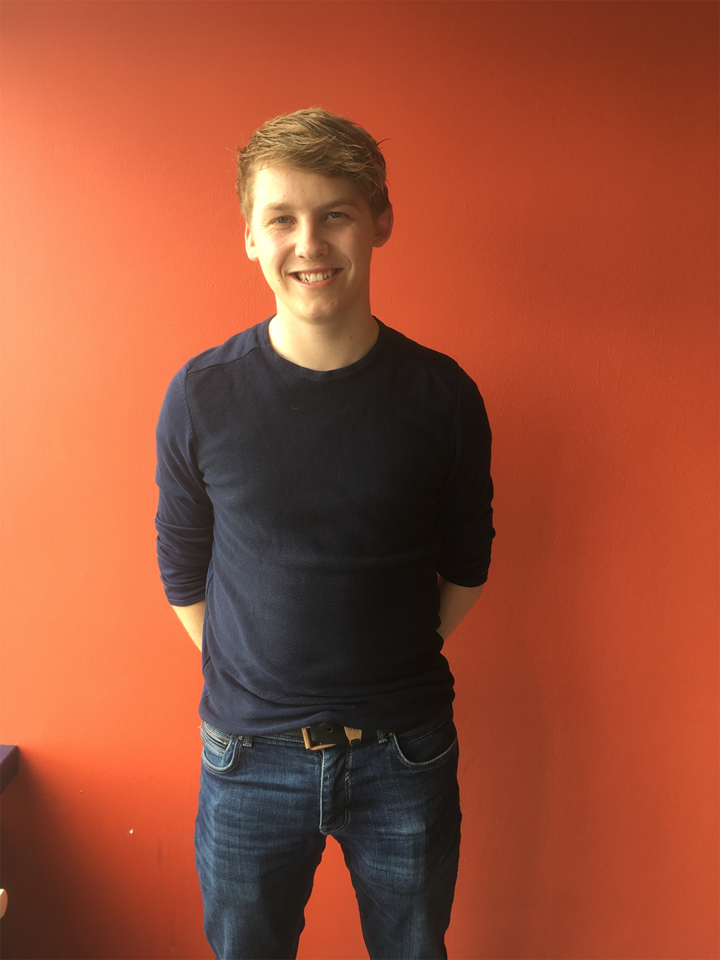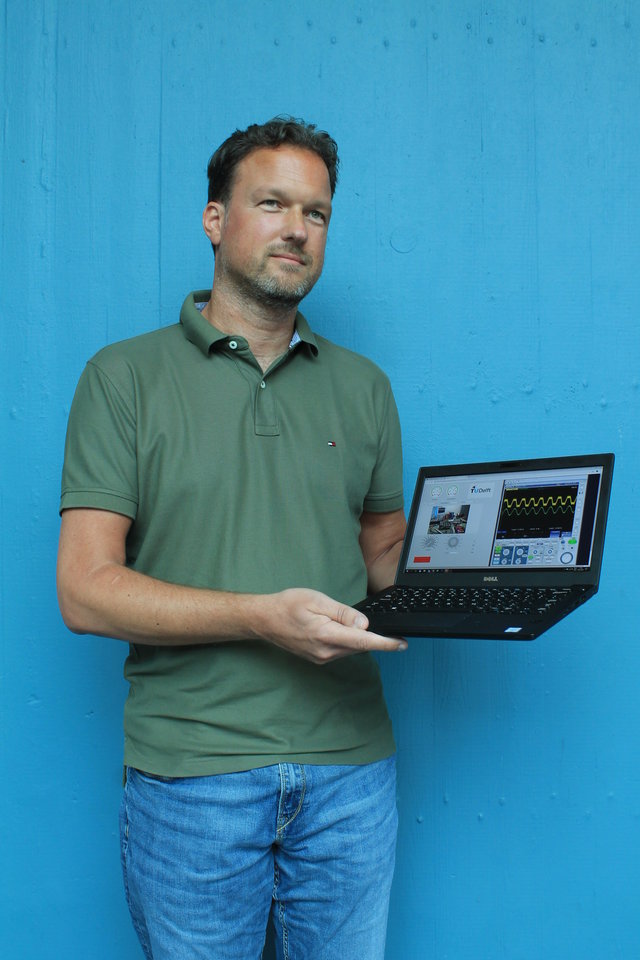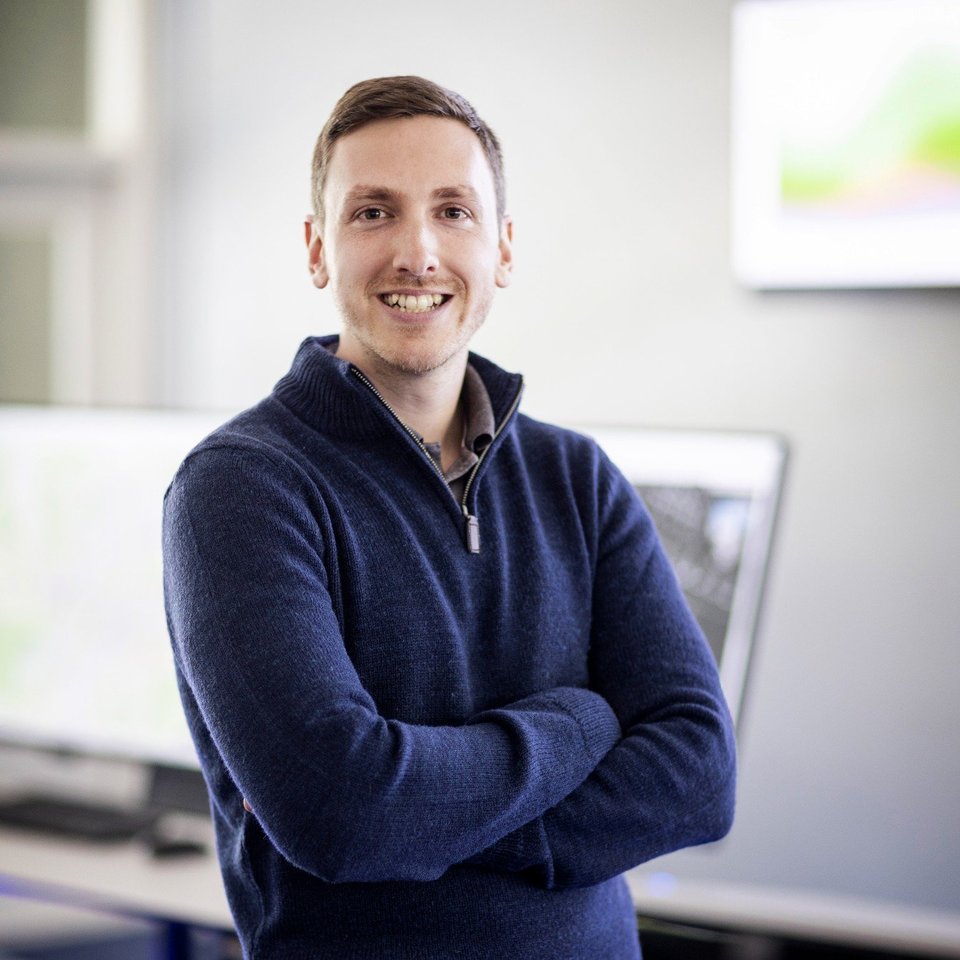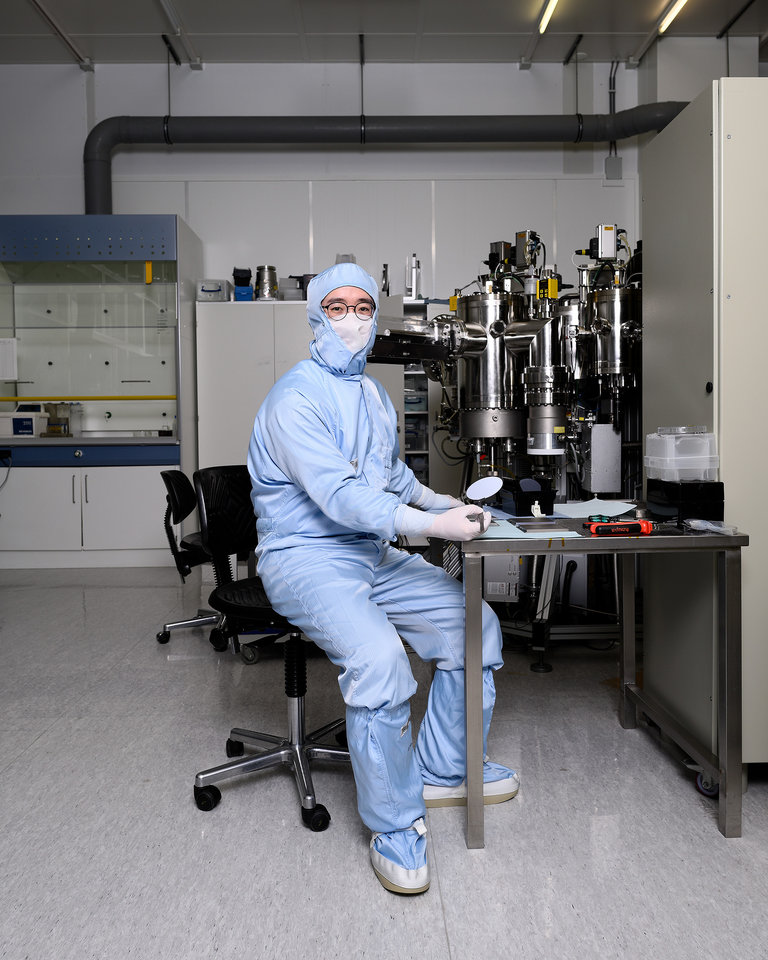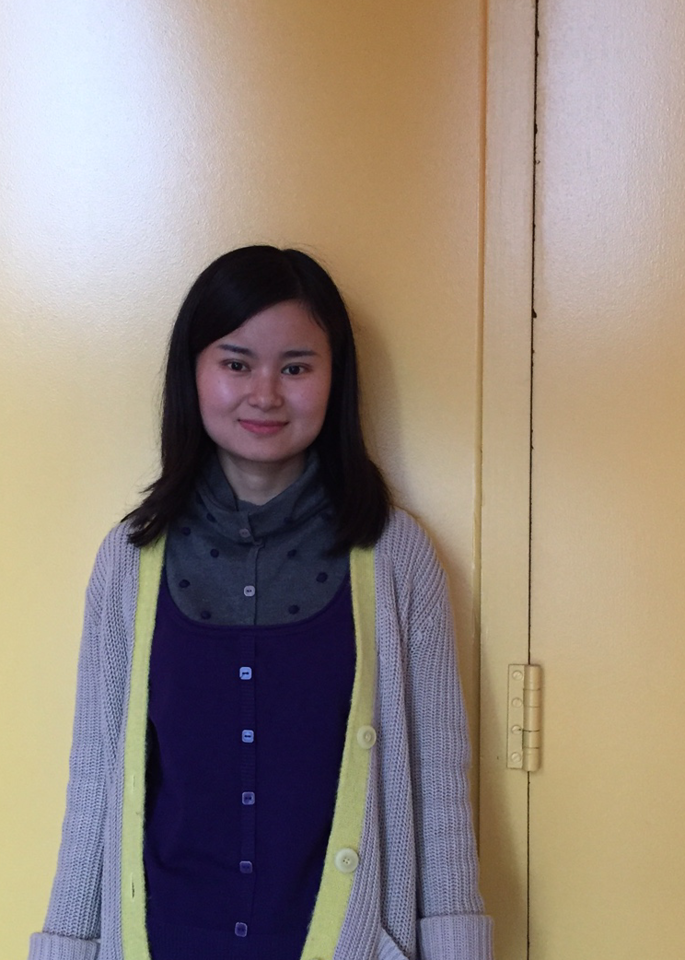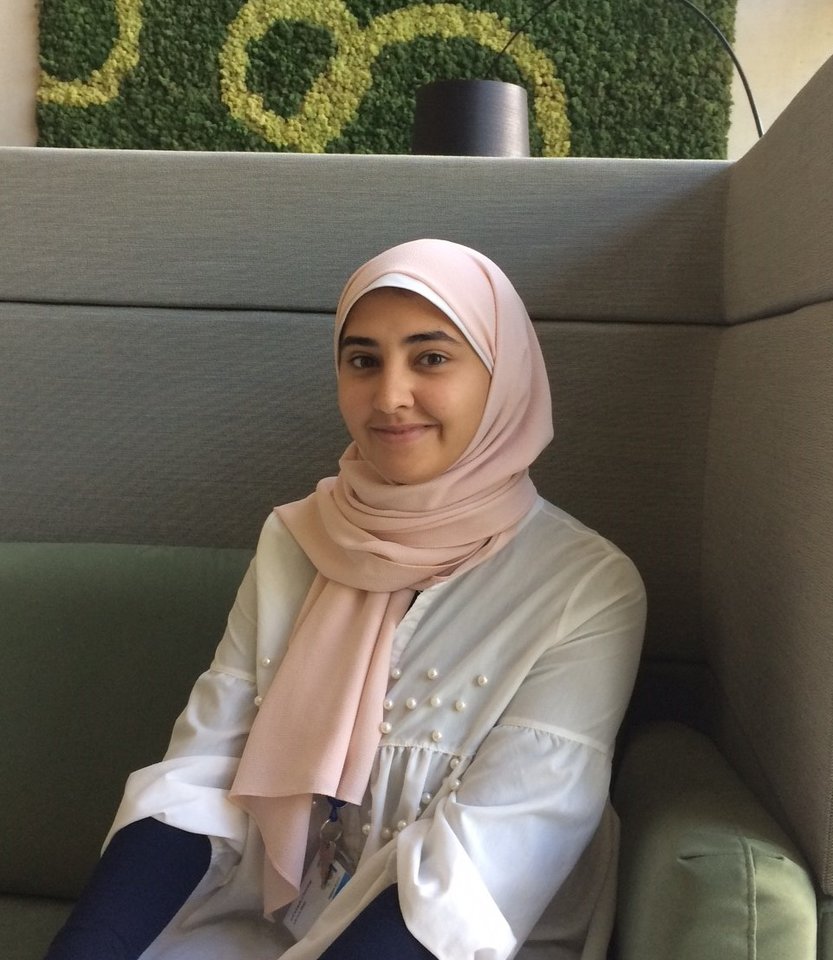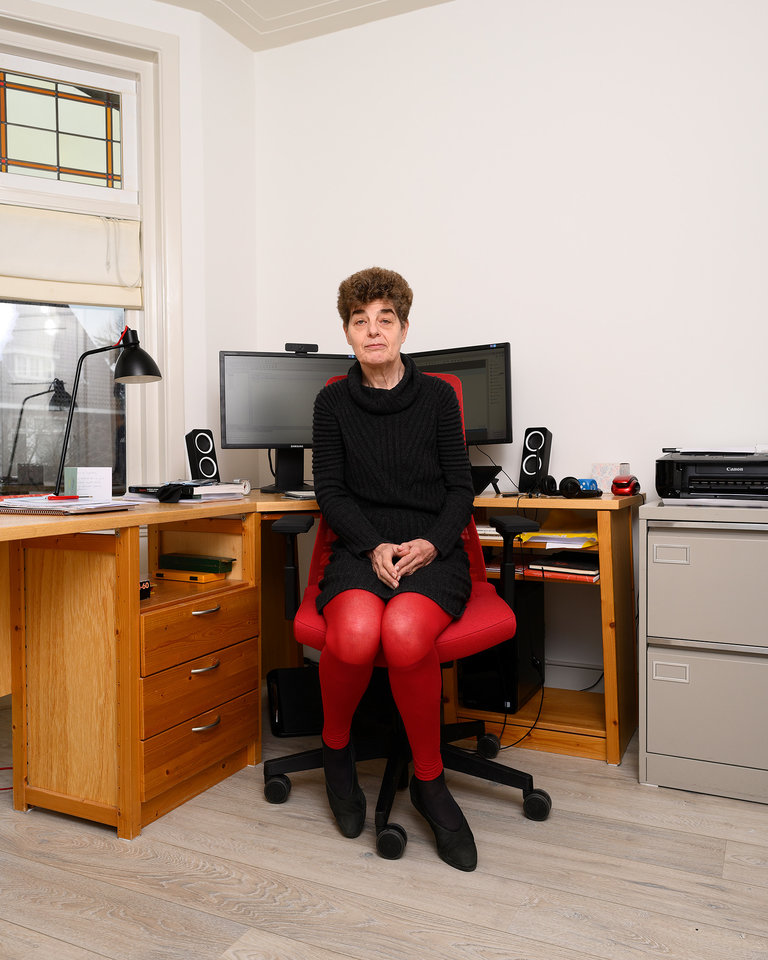Massimo is a tenure tracker within the Microelectronics department. He did his Masters in Pisa. He then went to Leuven for his PhD, then moved to Lausanne, Brussel and Stuttgart for his Postdoc before landing in Delft. At the Max Planck Institute for Intelligent Systems he worked in a team that developed miniature soft magnetic robots that could travel through the human body.
Miniature soft magnetic robots
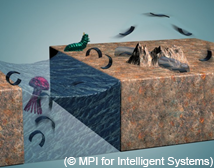 Massimo: “The moves of those tiny robots are inspired by caterpillars and jellyfish. They are small and flexible enough to crawl, walk and swim inside the human body. With a controlled magnetic field applied to the robots, one could move it around to deliver medicines much more precisely than with established means. This sounds more scary then it needs to be. In fact, it should be less invasive than catheters, and do less harm than the chemicals that you assume as medicine. The work of my team was published in Nature: ‘Small-scale soft-bodied robot with multimodal locomotion’.
Massimo: “The moves of those tiny robots are inspired by caterpillars and jellyfish. They are small and flexible enough to crawl, walk and swim inside the human body. With a controlled magnetic field applied to the robots, one could move it around to deliver medicines much more precisely than with established means. This sounds more scary then it needs to be. In fact, it should be less invasive than catheters, and do less harm than the chemicals that you assume as medicine. The work of my team was published in Nature: ‘Small-scale soft-bodied robot with multimodal locomotion’.
See also the short movie made by The New York Times: ‘This Tiny Robot Walks, Crawls, Jumps and Swims. But It Is Not Alive’
Organ-on-Chips
Massimo: “At TU Delft I am mainly working on Organs-on-Chips. We try to recreate little parts of the human body within physiologically realistic conditions over micro fabricated substrates. We are mimicking the real deal – so we could one day completely skip animal use in pre-clinical drug testing. It clearly is a highly multidisciplinary line of research with profound potential rewards. And there are obviously still many challenges along the way, both technological and communicational. For example, how to effectively interact with biologists. They have their own jargon, as much as we engineers have ours, and we do not always understand each other easily!”
